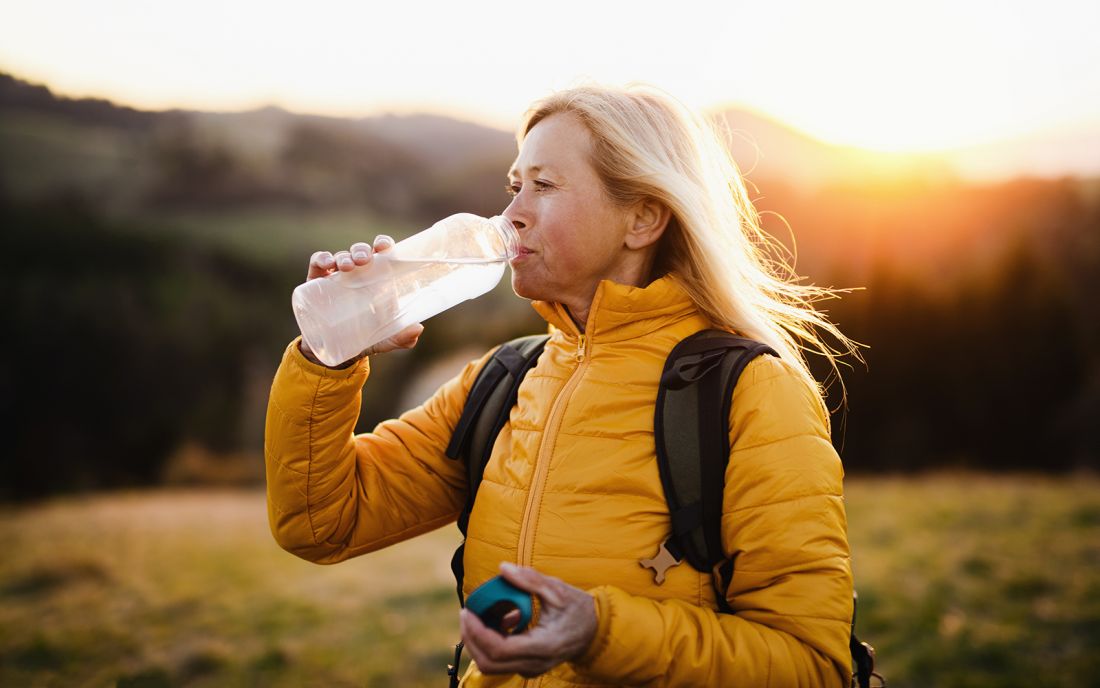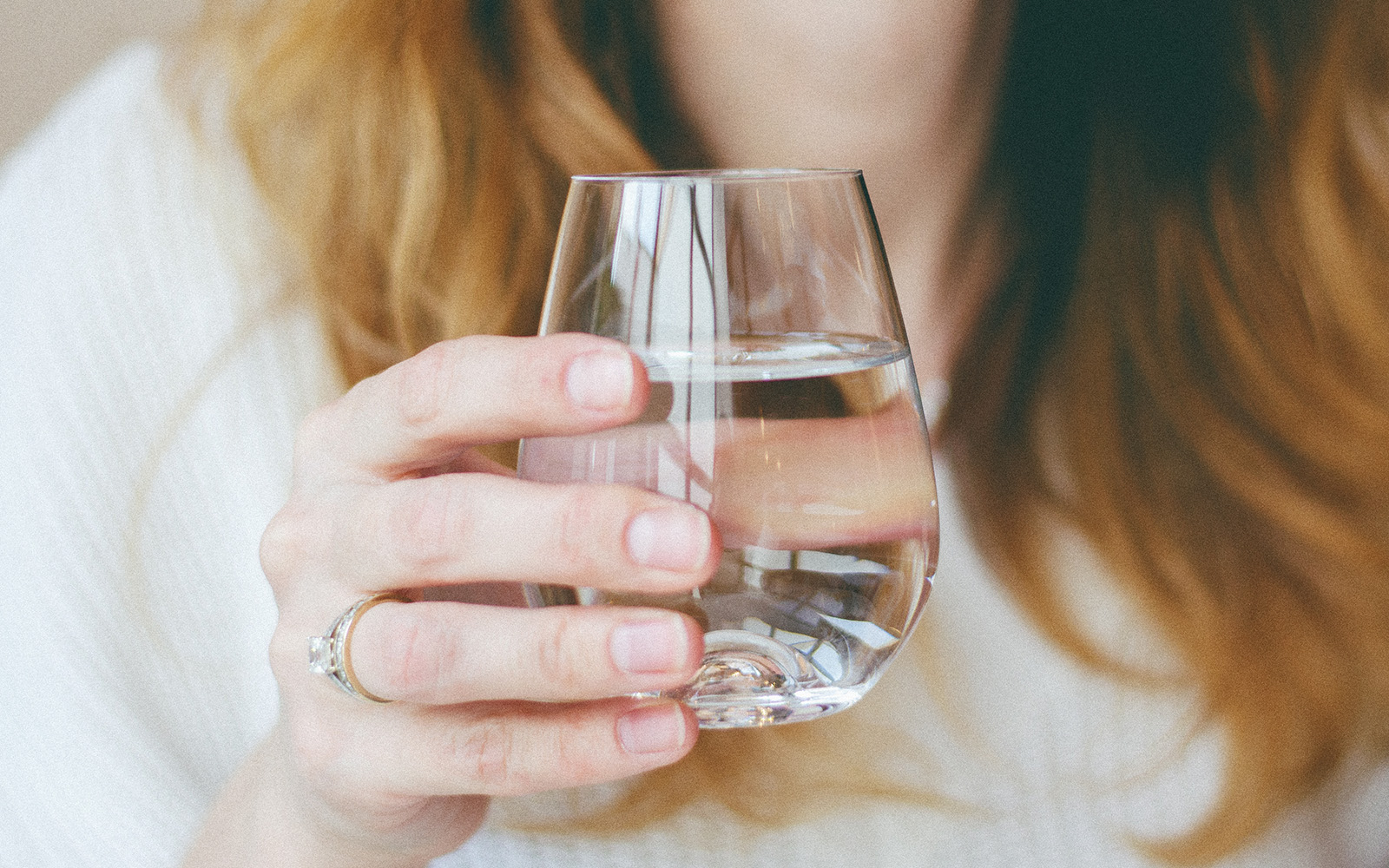
How Much Water?
A Doctor asks, “Do we need so much water? Really?”
Heinz Valtin, a professor of neurobiology and physiology at Dartmouth College’s medical school, debunked the “8 x 8” myth (that everyone should drink eight eight-ounce~ glasses of water a day) in a scientific review published by the American Journal of Physiology in 2002.”
Dr. Valtin was inspired to undertake this project, he writes, because he found it “difficult to believe that evolution left us with a chronic water deficit that needs to be compensated by forcing a high fluid intake.” In fact, he found “no scientific proof” to support the recommendation that everyone needs eight glasses of water a day. He adds that there are many ways drinking too much water can be harmful – including possible water intoxication, kidney failure, potential exposure to pollutants, and the expense.
The author suggests that the “8 x 8” myth might have arisen from a National Research Council report that recommended “approximately 1 millilitre for each calorie of food,” which would amount to roughly two or two and one-half quarts. In the next sentence, the report stated that “most of this quantity can be found in prepared foods,” but it seems that this explanation was missed.
~8 ounces = 240ml
8 x 8 = 1920ml of water (just under 2 litres)
Drink only when you are actually thirsty.
As we’ve shown above – we don’t need 2 litres of water to be healthy. From an Ayurvedic perspective, we see that drinking too much water aggravates not one or two but all three Doshas – in other words, not some people but everyone! Following the law of “like increases like,” let’s examine the impact of drinking too much refrigerated or ice water. The heart of this analysis comes from the classical Ayurveda text Ashtanga Hridayaman, recorded between the fifth and sixth centuries CE.
Remember that each Dosha has its inherent qualities and additions and subtractions to these qualities make for increases and decreases of the individual Doshas. Cold, dry, rough, and mobile are the qualities of Vata Dosha. Fluid, hot, light, and sharp are the qualities of Pitta Dosha. Smooth, heavy, slow, dull, and cold are intrinsic qualities of Kapha Dosha. The table on the next page demonstrates that drinking water, especially cold water, aggravates all three Doshas simultaneously. Hence, ideally, chilled water must not be consumed. Cool water is advised at times, but only in the autumn or when the body is undergoing heat-related challenges.
Because this is the effect drinking water has on the Doshas, drinking too much would escalate these effects. Besides, extra water – that is, water the body does not need – becomes a liability to digestion. This extra water dilutes the digestive enzymes, blocks the bio-channels of circulation and, in general, taxes the digestive system. The body now must spend precious energy processing each extra swallow of water.
If, after a health-inspired water binge, you become bloated, feel heavy, and lose your appetite, then you and your digestive fire are most likely drowning in the water you have consumed. Rather than causing a so-called flushing of toxins and stools, this excess fluid actually causes toxins to increase in the body because it obstructs the channels and aggravates the Doshas.
While millions lap up their ice-cold water, and the bottled water industry thrives, weight gain is epidemic. Excessive water intake can make your brain fuzzy through hyponatremia, and perhaps this is why masses of education, intelligent people never stop to ponder the research on the harmful effects of water drinking. Few pause to reflect on whether drinking the supposedly requisite eight glasses a day might be just a fad or a myth, with no basis whatsoever in science. Newborn babies instinctively know when they are hungry and when they are not. Why don’t we just listen to our own bodies?
Of course, adequate hydration is important, especially during increased physical activity, during the summer, at the warmest part of the day, or whilst experiencing certain illnesses. But the one-sizes-fits-all prescription of at least 8 glasses of water a day just doesn’t work.
Ayurveda never imposes arbitrary dictates of foods, fluids, or behaviours on a group of people. Each of us differs widely in our Dosha constitution, physical strength, digestive power, level of ama (toxins) in the body, status of bodily tissues, age, and health history. How could it be possible to prescribe one optimal diet for everyone? Ayurveda’s customised, specific, and detail-oriented system celebrates that we are, each of us, one-of-a-kind. The human body’s ingenious design, with the integrity of its complex systems and those systems’ needs, should never be tyrannised by the latest health fad.
So please – let me assure you that if you wait until you are thirsty to drink, you will not become dehydrated! This is a myth. Every animal makes it way to the best-known source of water – and slowly- when it’s thirsty. Sometimes, in the wild, this can take hours. Nature has built us with much more resilience than water industry experts would have us believe. Ayurveda restores to us our power to drink only when thirsty. And fear not, it will be a long, long while before our thirst becomes life threatening.

Drinking water is not fixed in the way mealtimes are fixed (more about this next week). Your thirst is bound to fluctuate based on your agni (digestive fire), the time of day, the season, the air temperature, and your level of activity. Respect your natural instinct, and drink water when you’re thirsty. Here are some additional guidelines from Ayurveda:
- Drinking a full glass of water (or any liquid) immediately before meals weakens your agni.
- Drinking water immediately after meals increases Kapha.
- If you feel the need to drink during meals, it’s best to drink a small quantity of water sipping whenever you wish.
- Drinking water two or three hours before or after a meal is also fine.
According to Ayurveda, boiled water that becomes cool naturally, while the lid of the boiling vessel is still covered, is highly digestible and mitigates all three Doshas and relieves thirst and fever. The water is additionally helpful in igniting agni since it has been processed by heat earlier. It’s helpful in combating constipation, flatulence, abdominal bloating and hiccups. When water is boiled down to half its original quantity, then it’s said to be three-dosha balancing. The water is said to help with weight loss as well as counteract toxins (ama) within the body channels.
Want to implement these changes*? Remember to take is slowly. If you’ve been drinking up to (and over) 2 litres of water a day your system has adjusted to disharmony and there may be side effects to reestablishing harmony, and time for your beautiful body to reestablish homeostasis. So maybe one step at a time. Make a change, monitor, become comfortable with the change and then make another one. You’ll be amazed at the results but never force a change that you’re not ready for.
*Obviously don’t make any of these changes if you have a medical condition that requires you to drink so much water. Also if you need to take medication with food but need water to do so – continue in doing so.